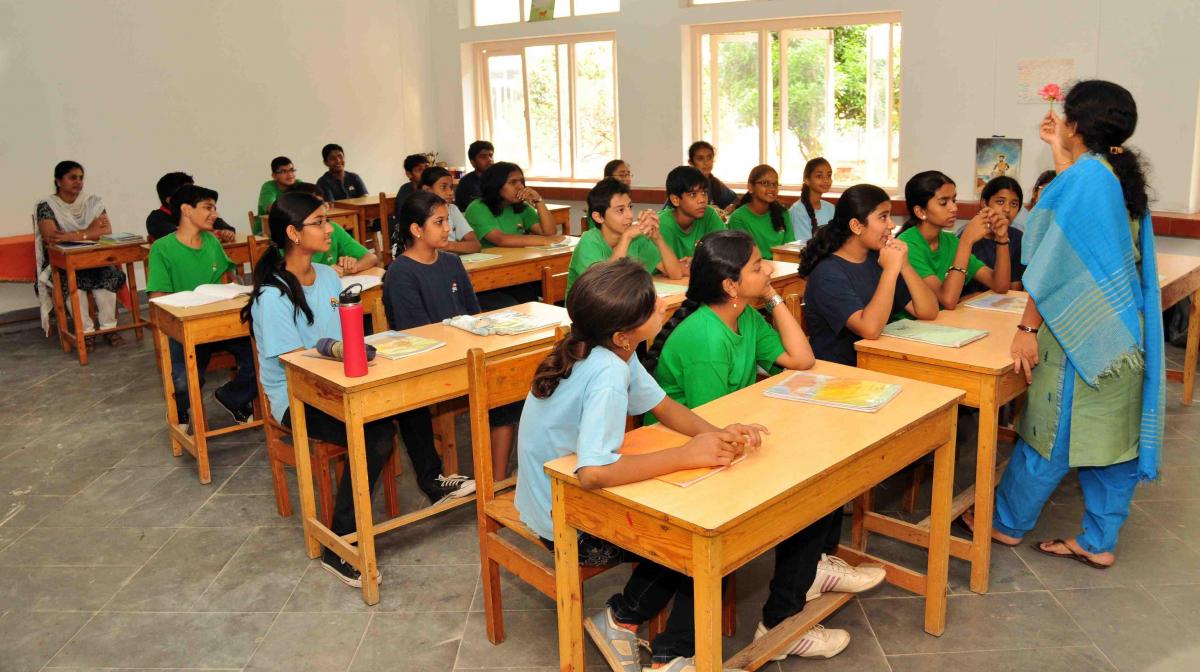The path to secularism through introducing religious studies

Representation Image
The draft National Education Policy (NEP) 2019was released online a few months ago and controversies surfaced regarding various aspects like advocating for Hindi language as central. As the debate rages on about language politics and erasure of diversity, another gaping hole in the policy is the lack of mention of secularism and religious studies.
The model of a secular education, of course, could either mean avoiding all religious instruction in schools or making equal space for texts from all the varied religions practiced in India.
While religious instruction is kept out of schools by the Education Policy, this has not meant an absence of “religious” texts in the classroom. We all remember studying poetry of bhakti saints like Basava, Tulsidas, Kabir, Mirabhai and Soordas, and poets like Malik Muhammad Jayasi, or Christian hymns like Lead Kindly Light by John Henry Newman in our literature textbooks.
While there is space for devotional poems and stories from mythology in the textbooks, it is another matter whether all religions of India have a representation in this manner. Our education system keeps no space or curriculum for the critical and authentic study of the various religions of our country. Could introducing a well-researched curriculum lead to a better understanding among children about their own and other religions? Could this aid in achieving a true vision of secularism by battling misinformation and fear of the unknown?
Children learn from their environment and our children sadly, have incorporated the discriminations of their surroundings as witnessed by multiple reports of children refusing to eat meals cooked by Dalit workers in Karnataka, Tamil Nadu, Uttar Pradesh, Madhya Pradesh, and more, according to news items surfacing every few months since 2015.
The discrimination percolates to children discriminating against each other as well as mirroring the actions of teachers and school managements. A report released by rights body, Human Rights Watch, “‘They Say We’re Dirty’: Denying an Education to India’s Marginalised,” highlights religious and caste-based discrimination in India’s schools. It laid bare instances of how Hindu teachers often passed derogatory remarks about Muslim students inside the classroom. The report found several instances of children in metropolitans like Delhi being discriminated against on religious grounds and discouraged from participating in sports and extracurricular activities.
There are even practices like separate classrooms and sitting areas for Dalit and Muslim students as seen in a story from Bihar, and in-depth studies like Payal Hathi’s research published in Economic and Political Weekly which yielded reports of discrimination against Dalit and Muslim students ranging from 10% to 25% across geographies and groups.
When asked about a case of discrimination against Muslim students and denying them admissions in Mumbai, Kiran Bhatty, a senior fellow at the Centre for Policy and Research who has worked as an education expert on several projects, including some with the Government of India, said “The discrimination could be happening in the classrooms as well, that can’t be denied. Maybe we need to remodel the whole (sensitization) programme and focus on training teachers in a way that their outlook towards these communities changes.”
Article 15 of the Indian Constitution prohibits “discrimination on any grounds- religion, race, caste, sex, place of birth or any other”. But are the tenets of non-discrimination being taught in schools? And if they are taught, is non-discrimination as a value, enough? Should we be talking about acceptance, tolerance, understanding, love even?
Indians have grown increasingly sensitive about religion, it is a topic that makes them nervous. In a country full of multiple faiths and pluralistic traditions, where communal hate is peddled in WhatsApp forwards and TV channels shouting out “Dharm pe vaar (attack on religion)” and repeating the word “Tushtikaran (Appeasement)” every 5 minutes, our next generation is learning about religion from all the wrong sources.
In the words of Mark Tully, “In the absence of authentic religious scholars and scholarship, the claims of those who have a vested difference in promoting religious disputes go unchallenged.”
India has much to learn, but it also has much to teach. We are a country with a long history of rich multi-faith traditions and cultures. We can create a comprehensive and unbiased curriculum for not just the Indian children, but also the world to learn about religion, harmony, and coexistence. The question is, will we?
Related articles
